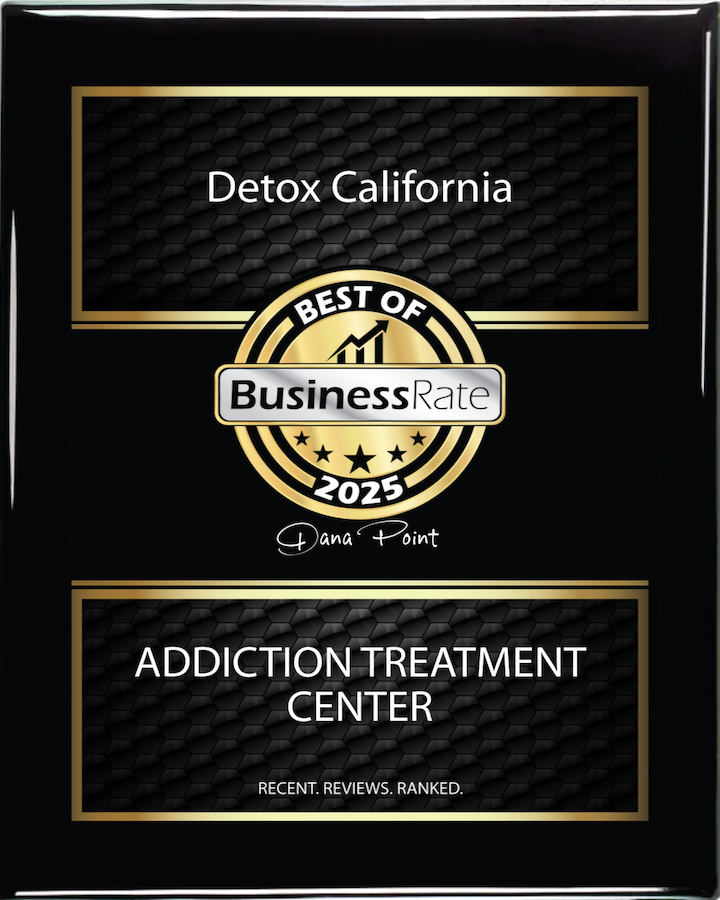If you’re concerned that your husband may be struggling with alcohol use disorder, taking a self-assessment can be a helpful first step toward understanding the situation. Our quiz is designed to provide insight into drinking habits and warning signs of alcohol dependence. Whether you’re taking this quiz for yourself or answering on behalf of a loved one, it will guide you through key questions about alcohol consumption, withdrawal symptoms, and health risks. This tool can help determine if professional addiction treatment or a healthcare provider’s support may be needed.
This quiz is intended as a self-assessment based on the Alcohol Use Disorders Identification Test (AUDIT), one of the most widely recognized tools for identifying alcohol use disorder. However, the results should not be viewed as a formal diagnosis. Instead, consider this quiz a starting point to better understand potential drinking patterns and their impact. For an official diagnosis and a comprehensive evaluation, it is important to consult with a healthcare provider or a licensed mental health professional.
Is My Husband an Alcoholic Quiz
Definition of Alcohol Use Disorder
Alcohol Use Disorder (AUD) is a medical condition characterized by an inability to control or reduce alcohol consumption despite negative consequences. It ranges from mild to severe and includes symptoms such as strong cravings, loss of control over drinking, withdrawal symptoms, and continued alcohol use despite health, social, or legal problems. AUD can lead to serious health conditions, including liver disease, mental health disorders, and other complications. Diagnosis is typically based on criteria outlined in the Diagnostic and Statistical Manual of Mental Disorders (DSM-5), and treatment often involves a combination of detox, therapy, and support groups like Alcoholics Anonymous.
Visible Symptoms of AUD
Visible symptoms of Alcohol Use Disorder (AUD) can manifest in both behavioral and physical changes that affect daily life and well-being. Recognizing these signs early is crucial in seeking timely treatment.
- Difficulty controlling alcohol consumption
- Strong cravings for alcohol
- Drinking in dangerous situations, such as while driving
- Neglecting responsibilities at work, school, or home
- Increasing tolerance, needing more alcohol to feel the same effects
- Withdrawal symptoms when not drinking, such as sweating, shaking, or nausea
- Continuing to drink despite negative consequences
- Social withdrawal and isolation from friends or family
- Loss of interest in activities once enjoyed
- Blackouts or memory loss after drinking
- Drinking alone or in secret
If you notice any of these symptoms in yourself or a loved one, it could indicate a deeper problem with alcohol dependence. Early intervention through addiction treatment programs and support groups can help prevent further health issues and promote recovery.
Alcohol Statistics for Men
Prevalence of Binge Drinking
- Binge drinking is more common among younger men, particularly those aged 18-34.
- Men are significantly more likely to binge drink compared to women, with around 28% of men binge drinking compared to 20% of women.
High-Intensity Drinking
- About 7% of men engage in high-intensity drinking (double or more the binge drinking threshold) at least once a year.
- High-intensity drinking significantly raises the risk of alcohol poisoning, accidents, and long-term health problems like liver disease and heart issues.
- This behavior also increases the likelihood of developing Alcohol Use Disorder (AUD).
Additional Alcohol Statistics
- Men are nearly twice as likely as women to report heavy alcohol use (15 or more drinks per week).
- About 50% of adult men have reported drinking alcohol in the past month, compared to 45% of women.
- Alcohol-related deaths are more common among men, with approximately 119,600 men dying from alcohol-related causes annually in the U.S.
- The National Institute on Alcohol Abuse and Alcoholism (NIAAA) reports that nearly one in four men over the age of 12 binge drink at least five times per month, placing them at high risk for serious health consequences.
Alcoholism vs. Binge Drinking vs. Heavy Drinking
Alcoholism
Alcoholism, also known as Alcohol Use Disorder (AUD), is a chronic condition where an individual has an inability to control or stop drinking despite negative consequences. It involves physical dependence, with symptoms like cravings, withdrawal, and tolerance to alcohol. Alcoholism typically leads to long-term health issues and often requires medical intervention for recovery. While binge drinking or heavy drinking can be signs of alcoholism, not all binge or heavy drinkers are alcoholics. The key difference lies in the loss of control and the compulsive need to drink that defines alcoholism.
Binge Drinking
Binge drinking refers to consuming large quantities of alcohol in a short period, typically defined as five or more drinks for men on a single occasion. Binge drinking is often episodic and may not involve physical dependence or daily drinking habits. While binge drinking does not always result in alcoholism, it can increase the risk of developing Alcohol Use Disorder over time. Binge drinking can lead to immediate dangers, such as alcohol poisoning, accidents, or risky behavior, but it does not necessarily involve the long-term consumption patterns seen in alcoholism or heavy drinking.
Heavy Drinking
Heavy drinking is generally defined as consuming 15 or more drinks per week for men. Unlike binge drinking, heavy drinking involves a more consistent pattern of excessive alcohol consumption. Heavy drinkers may not exhibit the same loss of control as alcoholics, but this behavior increases the risk of developing AUD and other serious health conditions. Heavy drinking shares some overlap with alcoholism, particularly in terms of increased tolerance and health risks, but it does not always involve the physical dependence and compulsive drinking seen in alcoholics.
In summary, while binge drinking is episodic, heavy drinking involves consistent excessive consumption, and alcoholism refers to a chronic condition characterized by dependency and a lack of control over drinking. Each can overlap with the others but differs in patterns and severity.
Health Risks Associated with Alcoholism
Alcoholism poses significant health risks that affect both the mind and body. While some of the dangers are immediate, others develop over time with continued excessive alcohol use. Understanding both the short-term and long-term risks can help individuals recognize the seriousness of Alcohol Use Disorder and the importance of seeking treatment.
Short-Term Health Risks
Alcoholism can lead to immediate dangers that can affect daily life and put individuals at risk for accidents and injury. These short-term risks occur due to impaired judgment and the body’s response to large amounts of alcohol.
- Alcohol poisoning
- Accidental injuries (e.g., falls, car accidents)
- Violent behavior or aggression
- Risky decision-making (e.g., unsafe sexual practices)
- Blackouts or memory loss
- Increased likelihood of legal problems (e.g., DUIs)
- Drowsiness or impaired coordination
Long-Term Health Risks
Prolonged alcohol abuse can lead to a variety of chronic and life-threatening health conditions. The damage from long-term alcohol use often affects multiple organ systems, leading to serious health problems over time.
- Liver disease (cirrhosis, liver failure)
- Heart disease and high blood pressure
- Pancreatitis
- Increased risk of cancer (mouth, throat, liver, breast, etc.)
- Permanent brain damage or cognitive decline
- Weakened immune system
- Mental health disorders, such as depression and anxiety
- Increased risk of stroke
- Alcohol-induced dementia
Both short-term and long-term health risks highlight the dangers of untreated alcoholism, emphasizing the need for intervention and proper addiction treatment to prevent further harm.
What Are Warning Signs to Watch For?
If you suspect that your husband may be struggling with alcoholism, there are several behavioral and physical signs that could indicate a problem. Recognizing these warning signs early can help you determine whether professional help or treatment is needed.
Common warning signs to watch for include:
- Drinking more often or in larger amounts than intended
- Expressing a strong desire or craving to drink
- Neglecting responsibilities at work, home, or with family
- Drinking in secrecy or lying about alcohol consumption
- Showing signs of withdrawal, such as shaking, sweating, or nausea when not drinking
- Increased irritability or mood swings
- Loss of interest in activities once enjoyed
- Frequent blackouts or memory lapses related to drinking
- Making excuses to drink, even in inappropriate situations
- Neglecting personal hygiene or appearance
- Defensiveness or anger when confronted about drinking
- Driving under the influence or engaging in risky behaviors while intoxicated
If you observe several of these warning signs in your husband, it may be time to consider seeking professional advice or contacting a treatment center for guidance on the next steps.
Can You Force Your Husband into Rehab?
Deciding whether to force a loved one into rehab is a difficult and emotional choice. In the U.S., laws surrounding involuntary rehab vary by state. In some states, it is possible to legally mandate treatment for individuals who are unwilling to seek help on their own, especially if their addiction poses a threat to themselves or others. Detox California is located in the state of California. Here, family members may pursue involuntary rehab if they can provide the following evidence in court:
- The individual suffers from a substance use disorder, such as alcohol use disorder
- The individual has either harmed themselves or others, or presents an imminent risk of doing so.
However, involuntary rehab is often seen as a last resort, as voluntary participation in treatment generally leads to better long-term outcomes. If you are considering this option for your husband, it’s essential to first explore other avenues of support, such as discussing the situation with a healthcare provider or encouraging him to seek treatment voluntarily. Consulting a legal professional familiar with California’s laws can also help you navigate the process if involuntary rehab becomes necessary.
Find a Way Forward with Detox California
If you suspect that either you or your loved one is suffering from alcohol use disorder, taking action is critical. Recognizing the warning signs early and understanding the risks associated with alcoholism can be the first steps toward recovery. At Detox California, we offer comprehensive addiction treatment programs tailored to meet individual needs, providing a safe and supportive environment for those seeking to overcome alcohol dependence.
Don’t wait until the situation worsens. Contact Detox California today to explore treatment options and begin the journey toward recovery. Whether it’s for you or your husband, our dedicated team is here to help every step of the way, offering professional care, support groups, and a path to a healthier, alcohol-free life.

















